Key takeaways:
- Stage fright is primarily driven by a fear of judgment and negative evaluation, which can result in physical symptoms like shaking or sweating.
- Understanding and acknowledging stage fright can transform it from a crippling barrier into a motivator for deeper audience connection and improved performance.
- Common causes include fear of unpredictability during live performances and the impact of past negative experiences on confidence.
- Techniques to manage stage fright include visualization, breathing exercises, and engaging with the audience to reduce anxiety and create a supportive atmosphere.
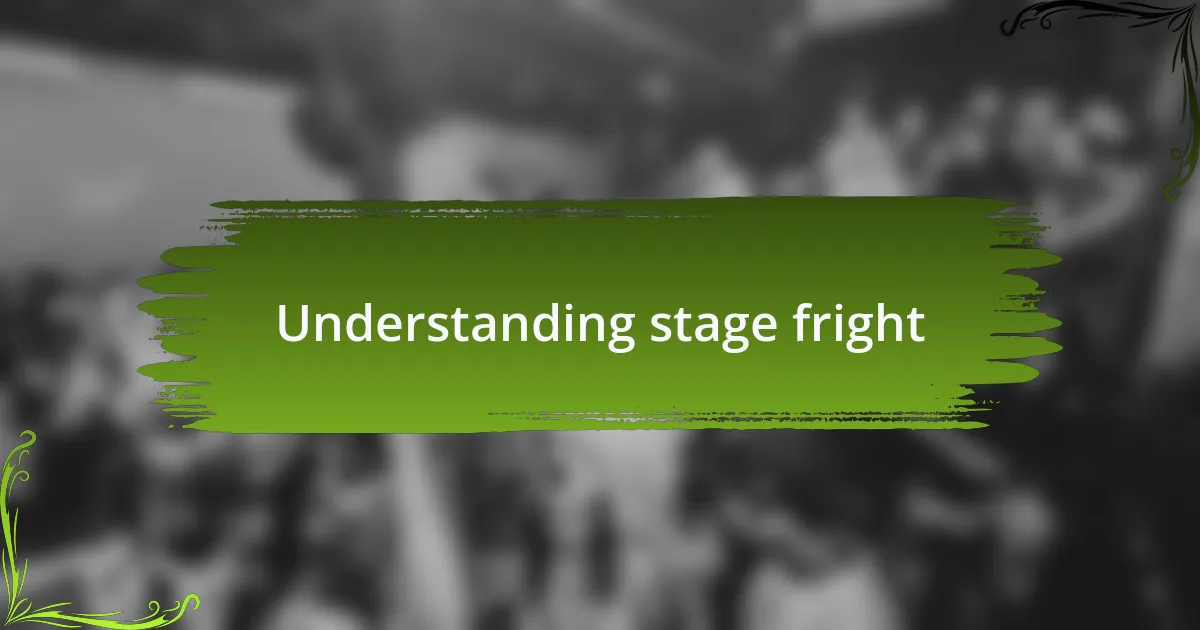
Understanding stage fright
Stage fright can often feel like an insurmountable wall between the artist and their audience. I remember my first performance—it was as if my heart had taken up residency in my throat, beating audibly for everyone to hear. Why is it that speaking or singing in front of people can trigger such fear? It’s a mix of vulnerability and the pressure to be perfect, which can make even the most seasoned performers question their abilities.
As I delved deeper into understanding stage fright, I realized that it stems from a fear of judgment. The thought of having one’s performance critiqued can be daunting; after all, I once stood before a dozen faces, trembling, terrified of what they might think. This fear can transform into physical symptoms—cold sweat, shaky hands—making it even harder to connect with the music I love.
Interestingly, I found that recognizing these feelings was the first step toward overcoming them. Instead of viewing stage fright as an adversary, I began treating it as a natural response to passionate expression. Have you ever felt that pang of fear transform into excitement once the music starts? For me, that shift was pivotal, reminding me that those nerves could fuel a deeper connection with the audience.
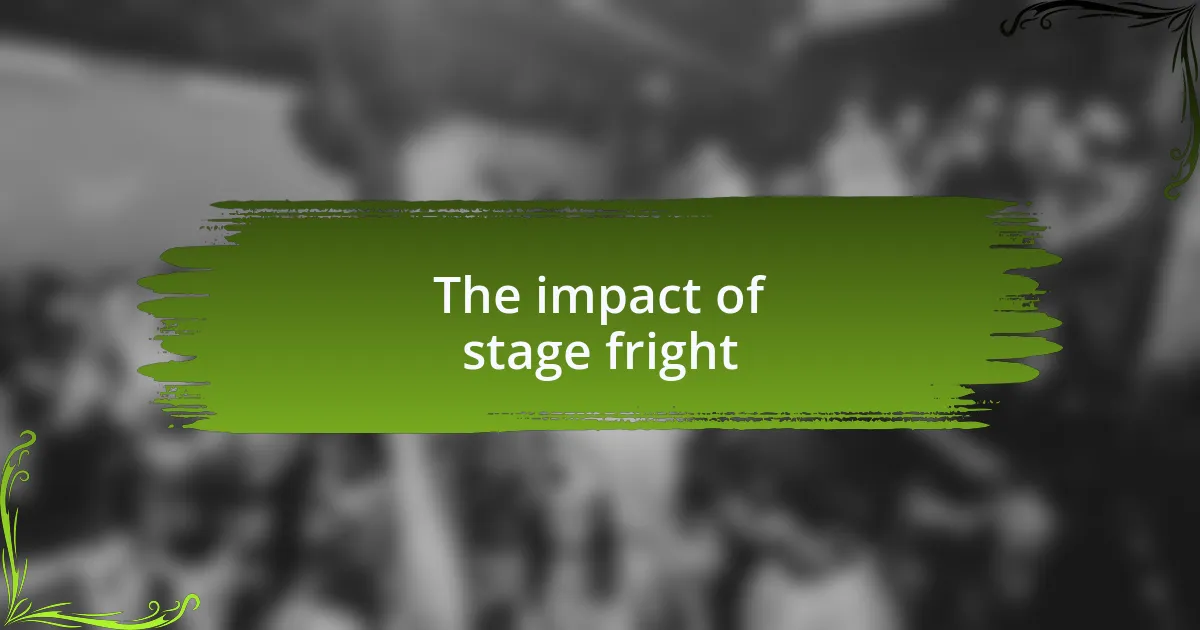
The impact of stage fright
Stage fright can cast a long shadow over a performance, often leaving artists in a state of paralysis. I recall a time when I stepped on stage, feeling as though the spotlight was a magnifying glass, amplifying every ounce of anxiety I felt. It was disheartening to realize that instead of focusing on my music, I was trapped in my own head, spiraling through thoughts of failure and judgment.
The effects of stage fright extend beyond just the moment of performance; they linger long after. I’ve met musicians who have experienced this too, recalling how the fear can diminish their passion for performing, turning a moment of joy into an anxious ordeal. Isn’t it ironic how the thing we love can also provoke such fear? In my journey, I learned that this anxiety can disrupt not just the performance itself but also the connection and joy that music brings.
In my experience, acknowledging stage fright has been crucial to my growth. I’ve learned to see it as a signal that I truly care about my art and my audience. Rather than letting it silence me, I’ve tried channeling that energy into my performance. Have you ever found that nervous energy pushing you to work harder? That realization that stage fright is a sign of deep investment in my craft has turned what felt like a crippling barrier into a motivator.
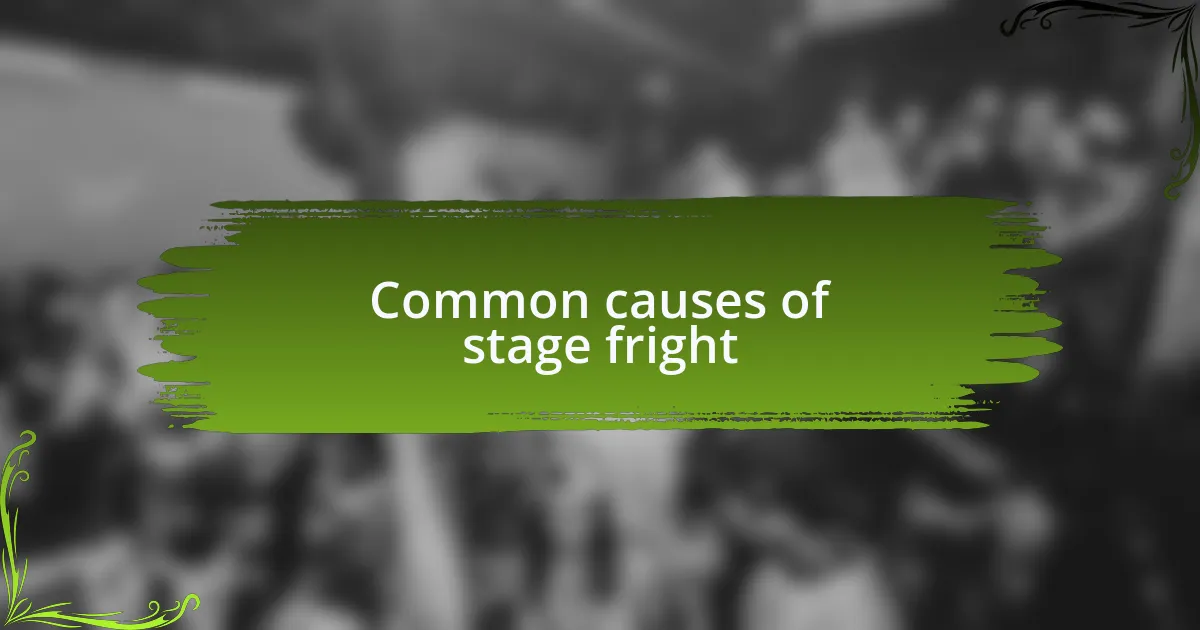
Common causes of stage fright
Stage fright often stems from a fear of negative evaluation. I distinctly remember the first time I played in front of a large audience; it felt like they were all waiting for me to fail. The thought of judgment from others can weigh heavily, creating a mental block that’s hard to shake off. Have you ever felt that pressure to be perfect in a performance? It can almost feel suffocating at times.
Another common cause is the unpredictability of live performances. The reality is, anything can happen on stage. I once had a string break mid-performance, and my mind spiraled into panic as I worried about how the audience would react. That unpredictability introduces an element of chaos, where the fear of the unknown can easily lead to anxiety. It’s this lack of control that feeds into the anxiety we face.
Lastly, previous negative experiences can haunt us like shadows. I remember an early gig where I completely lost my place in the song, and the embarrassment lingered long afterwards. It’s interesting how one moment can create a lasting fear, echoing in our minds whenever we approach the stage again. How do we move forward from those moments and rebuild our confidence? For many of us, recognizing those past experiences as part of our growth can be a key step in overcoming stage fright.
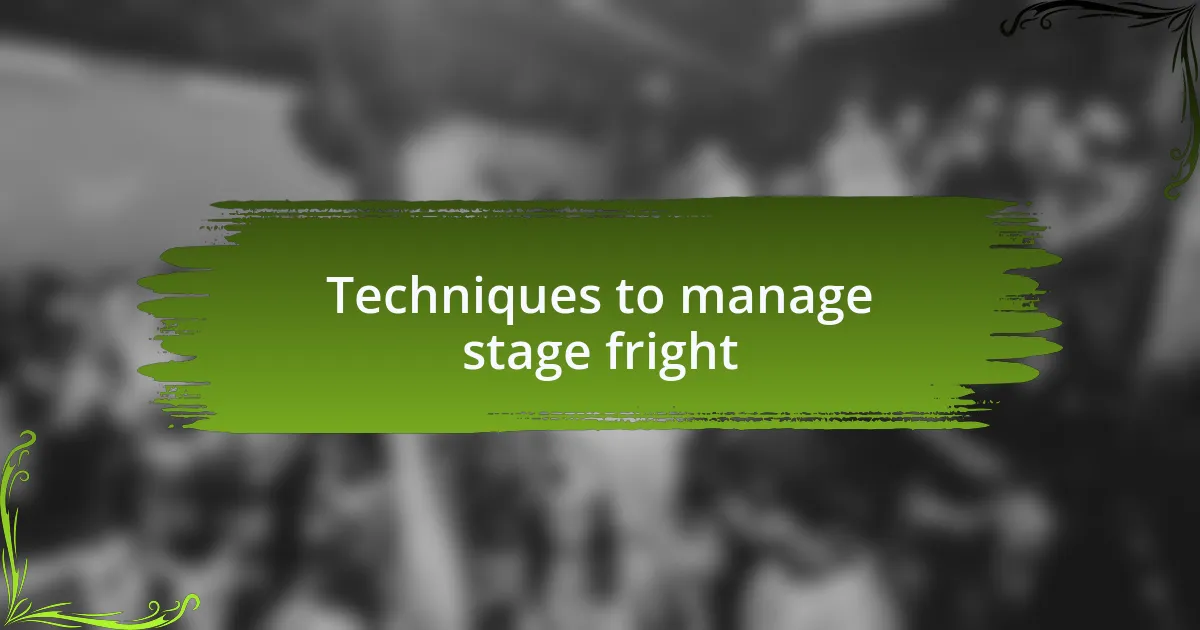
Techniques to manage stage fright
One effective technique I found invaluable is visualization. Before stepping onto the stage, I take a few moments to close my eyes and imagine everything going perfectly. I recall one particular performance where I envisioned the audience smiling and swaying to the music, which helped alleviate my nervousness. Have you ever tried picturing success before a big moment? It might surprise you how much it can shift your mindset.
Another strategy is breathing exercises. I learned this simple technique during a workshop, and it transformed my approach to performances. By taking deep, intentional breaths, I can calm my racing heart and clear my mind. I remember feeling the wave of panic wash over me before a set, but just a minute of focusing on my breath brought me back to the present moment. Breathing can be such an effective anchor, don’t you think?
Lastly, I’ve discovered the power of connecting with the audience. Instead of seeing them as an intimidating sea of faces, I try to focus on individual reactions or even engage in some light conversation before performing. I had a memorable experience where I shared a quick joke before my set, and suddenly, the atmosphere felt lighter. It made me realize that the audience is rooting for you, not judging you. Have you ever thought about how creating that connection could ease your nerves?
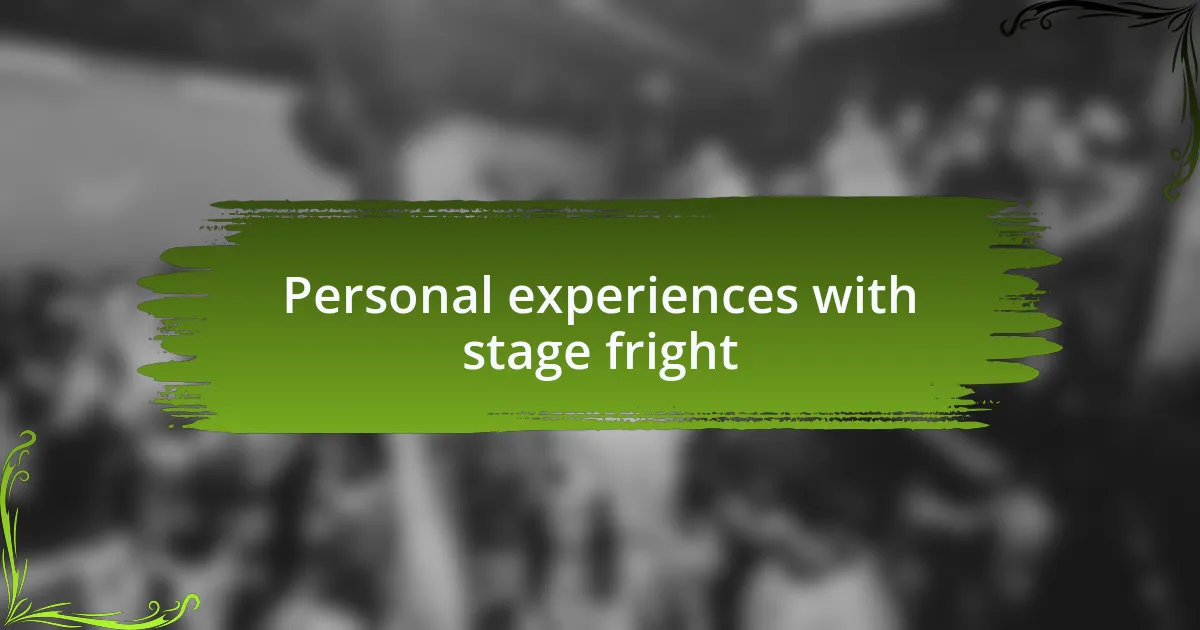
Personal experiences with stage fright
Before I delve deeper into my experiences, I want to share a moment that still resonates with me. I remember my very first open mic night. My hands were shaking, and my heart felt like it was pounding out of my chest. As I looked into the audience, everything blurred, and I couldn’t focus on anything but the mounting fear. That first note I played was tentative, but the supportive applause afterward made me realize I could do this. Have you ever faced a moment where you questioned your abilities but found out you were more capable than you thought?
There was another time, during a local band competition, when I swallowed my nerves and decided to walk out on stage with a trusty charm: my lucky guitar pick. As I tightened my grip around it, I felt a flicker of confidence ignite within me. The fear didn’t vanish completely, but that tiny ritual reminded me of countless hours of practice and the joy I felt while playing with friends. It begged the question: how do small rituals help us confront our fears?
Looking back, I see how each experience with stage fright taught me something valuable about myself. I learned that vulnerability isn’t a weakness; it’s part of being human. I once had a complete mental block halfway through a set, and instead of panicking, I laughed it off, invited the audience to share a laugh, and eventually found my way back. That experience was liberating. Have you ever turned a moment of vulnerability into a connection with your audience?